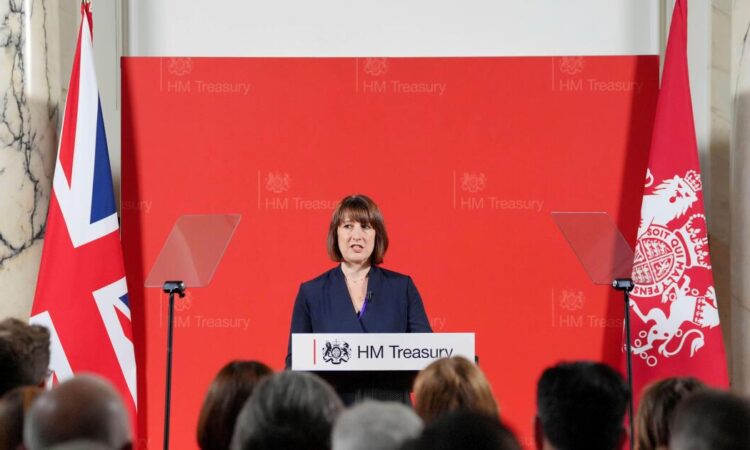
In the five days since Sir Keir Starmer led the UK’s Labour Party back to government for the first time for 14 years, Labour has been desperate to show it means business.
The new government has staked its reputation on getting the economy firing again, but with little detail on how it plans to finance this. Securitization can play a big role in funding the growth Labour needs.
“There is no time to waste,” declared Rachel Reeves in her first speech as chancellor of the exchequer on Monday. She announced a string of targets, to reform planning, get wind turbines whirring, create a National Wealth Fund and build 1.5m homes.
Yet the government has also promised not to raise income tax, VAT or national insurance.
Many have questioned whether the government’s investment and tax plans are compatible. Without growing the economy substantially over the next couple of years, they probably aren’t. And Reeves knows it.
The chancellor’s hope is that “private investment” will come to the rescue. She singled out pension funds in particular, but with no great explanation on what they would be encouraged to invest in, beyond “homegrown businesses”, or how it would be done.
Perhaps it’s impatience, but with much of Labour’s economic vision, the “how” remains unclear.
The situation also screams: “Securitization!”
Last week, the European Union published a presentation on securitization by Georges Duponcheele, a former ABS banker at BNP Paribas, now senior credit portfolio manager at Great Lakes Insurance (part of Munich Re).
He argued securitization was not just a funding tool but a financing tool — something that can create what he called “capital velocity”. That velocity means new lending can take place and economies can grow.
As Duponcheele’s presentation showed, the EU has wasted a decade tying securitization up in punitive regulations, making it unviable for many insurance companies to invest and for originators to issue, apart from the very low risk products.
EU policymakers and politicians are slowly waking up to arguments like Duponcheele’s, that this form of finance has a “huge untapped potential to finance the massive investment gaps for green transition and digital transformation”.
The UK, only recently a separate market, is in the same boat.
Progress has been made in areas like the Solvency II capital regime for insurers, which Reeves looks primed to take advantage of already.
And there are some small changes in the works from the previous government’s ‘Edinburgh Reforms’ package.
But as Labour tries to put flesh on the bones of its economic plans, there will be endless ways securitization can be used, so long as it’s reformed.
Imagine a nationwide initiative using ABS to finance green projects like residential solar, wind turbines, heat pumps and more.
Imagine helping first time buyers on to the housing ladder through government-supported RMBS. Imagine aiding project finance for important infrastructure through long term secured bonds.
It’s all possible, when unreasonable roadblocks from risk weighting and capital requirements are removed.
Perhaps this article should have begun as an open letter to the new chancellor. Failing that, it can finish as one:
Congratulations on your historic appointment. If you need help being introduced to the leaders of UK securitization, which can help make your dreams of kickstarting the economy a reality, GlobalCapital would be happy to coordinate a lunch.






